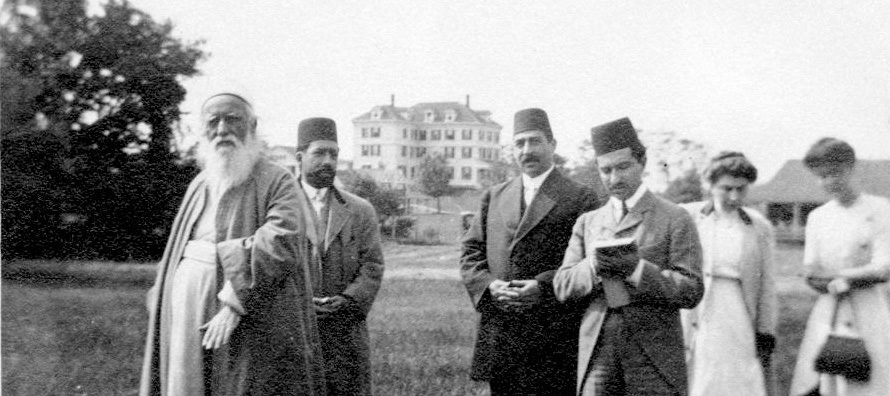In contemporary society, the experience of crisis—be it personal, communal, or global—has become an increasingly prevalent phenomenon. Economic downturns, environmental catastrophes, and social upheaval are but a few examples of the tribulations confronting humanity in the modern era. Amid these challenges, the teachings of the Bahá’í Faith offer profound insights and methodological approaches to foster connection and unity during tumultuous times. The Bahá’í approach, which emphasizes a harmonious relationship between individuals and communities, provides a framework for navigating through crises while enhancing spiritual and social bonds.
One of the fundamental tenets of Bahá’í teachings is the concept of unity in diversity. This principle underscores the importance of acknowledging and appreciating the multifaceted nature of humanity. During crises, when divisions may become exacerbated, Bahá’í teachings advocate for a concerted effort to transcend individual differences. The recognition that each person possesses an inherent value, regardless of their background or beliefs, cultivates an environment conducive to collaboration. By fostering dialogue that embraces diversity, individuals can unite in pursuit of collective solutions, thereby strengthening their interconnectedness.
Furthermore, the Bahá’í Faith teaches that the innate capacity for compassion is central to human nature. This capacity becomes especially salient in times of distress when empathy can either bridge or widen the chasms between individuals and communities. In ill-fated moments, disseminating love and understanding becomes imperative. Bahá’í scripture encourages believers to respond to individuals’ suffering with kindness and support, reaffirming the essential oneness of humanity. This empathetic approach not only affirms the dignity of the afflicted but also fortifies the bonds of mutual reliance and fellowship.
Collaboration stands as another cornerstone of the Bahá’í methodology during crises. The Faith recognizes the potency of collective action, which is accentuated when individuals come together to tackle shared challenges. Bahá’í teachings highlight the effectiveness of consultative processes—engaging various stakeholders in respectful discourse to arrive at informed decisions. This collaborative framework proves instrumental in crisis management, as diverse perspectives can illuminate pathways to resolution that may remain obscured when approached independently.
Moreover, the Bahá’í approach recognizes the need for internal consistency within individuals and communities, especially when external pressures mount. This consistency manifests through adherence to ethical frameworks that promote integrity and justice. The Bahá’í teachings posit that true transformation occurs when individuals harmonize their thoughts, actions, and words. In crisis situations, this alignment fosters resilience, as communities fortified by moral clarity can better withstand adversity. The emphasis on individual accountability serves to enhance collective efficacy, enabling communities to respond decisively and positively to challenges.
Central to the Bahá’í perspective is an unwavering belief in the progressive revelation of spiritual truth. This belief posits that humanity is continually evolving in its understanding of spiritual principles, which offers hope even in the face of daunting crises. The teachings affirm that the lessons learned during challenging times contribute to the unfolding narrative of human development. This long-term vision encourages a focus on solutions that transcend immediate needs, fostering a commitment to sustainable practices and social innovation.
Additionally, the Bahá’í teaching regarding service plays an indispensable role in connection during crises. Acts of service not only embody the principles of the Faith but also serve as a vessel for fostering solidarity among individuals. Engaging in service-oriented activities not only mitigates individual suffering but also strengthens communal ties, as members work collectively toward common goals. When individuals devote their efforts to serve others, they catalyze a culture of reciprocity, where communal resilience becomes the norm rather than the exception.
The Bahá’í teachings also emphasize the significance of education, particularly in times of crisis. An educated populace is better equipped to navigate challenges and find innovative solutions. Education is viewed as a capacitating agent, promoting critical thinking and adaptive responses to crises. Bahá’í communities are encouraged to prioritize learning and the dissemination of knowledge, creating avenues for empowerment. This commitment to education champions the notion that well-informed individuals can foster dynamic, resilient communities capable of weathering even the most formidable storms.
Finally, spiritual practices are integral to fostering connection during crises within the Bahá’í context. Regular prayer and meditation serve as conduits for individuals to realign their thoughts, soothe their anxieties, and cultivate a steadfast sense of purpose. These practices encourage a reliance on divine guidance, promoting tranquility in the face of uncertainty. Moreover, congregational gatherings and communal prayers create opportunities for shared spiritual experiences, reinforcing solidarity among individuals who may be grappling with similar challenges.
In conclusion, the Bahá’í approach to connecting during times of crisis is multifaceted and deeply rooted in ethical principles that promote unity, compassion, and collaboration. By adhering to these teachings, individuals and communities are equipped to confront adversities with resilience, emphasizing the vital importance of human connection. As we navigate the complexities of contemporary crises, the Bahá’í methodology offers invaluable insights, reaffirming that even in the darkest of times, the potential for collective growth and unity remains ever-present. Through these teachings, we are reminded of our shared responsibility to nurture connection and cultivate a just and peaceful society.
